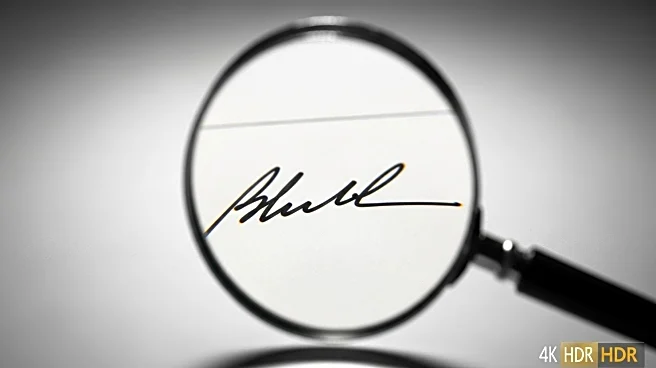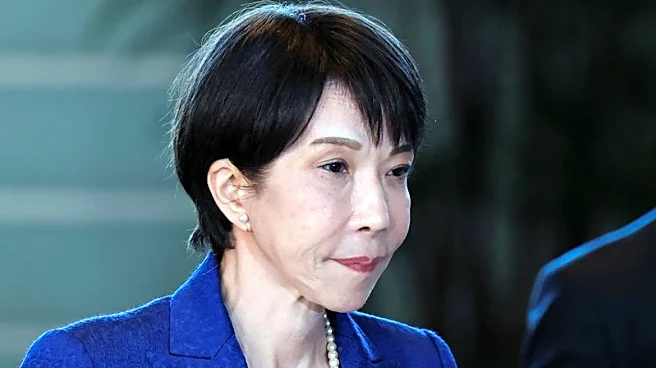What is the story about?
What's Happening?
President Trump's signature has come under intense scrutiny following the release of a 2003 'birthday book' allegedly signed by him for Jeffrey Epstein. The House Oversight Committee recently released an image of the note, which has reignited public interest and debate over its authenticity. President Trump has denied writing the note, which features printed text within a hand-drawn outline of a female body and bears his name and apparent signature. The controversy has led to a lawsuit filed by Trump against The Wall Street Journal, which first reported on the note's existence. Handwriting analyst Sheila Lowe has provided insights into the process of verifying signature authenticity, noting that it involves examining a range of factors such as spatial arrangement, letter designs, and writing movements.
Why It's Important?
The scrutiny of President Trump's signature in connection with the Epstein note highlights ongoing public and political interest in the former president's past associations. The controversy also underscores the challenges in verifying the authenticity of signatures, which can have significant implications in legal and political contexts. The situation may affect public perception of President Trump, particularly in light of his previous friendship with Epstein, who was a convicted sex offender. The case also raises questions about transparency and accountability, as the administration faces criticism for not releasing all files related to Epstein.
What's Next?
The ongoing debate over the authenticity of President Trump's signature may lead to further legal and political developments. The lawsuit against The Wall Street Journal could result in additional scrutiny and media coverage. Political leaders and the public may continue to demand transparency regarding the Epstein files, potentially influencing future legislative or investigative actions. The situation may also prompt discussions about the standards and methods used in forensic handwriting analysis.
Beyond the Headlines
The controversy surrounding President Trump's signature and the Epstein note may have broader implications for how public figures' past associations are scrutinized. It highlights the role of forensic analysis in legal and political disputes and raises ethical questions about privacy and the use of personal signatures in public discourse. The case may also influence how similar situations are handled in the future, particularly regarding the release of potentially sensitive information.
















